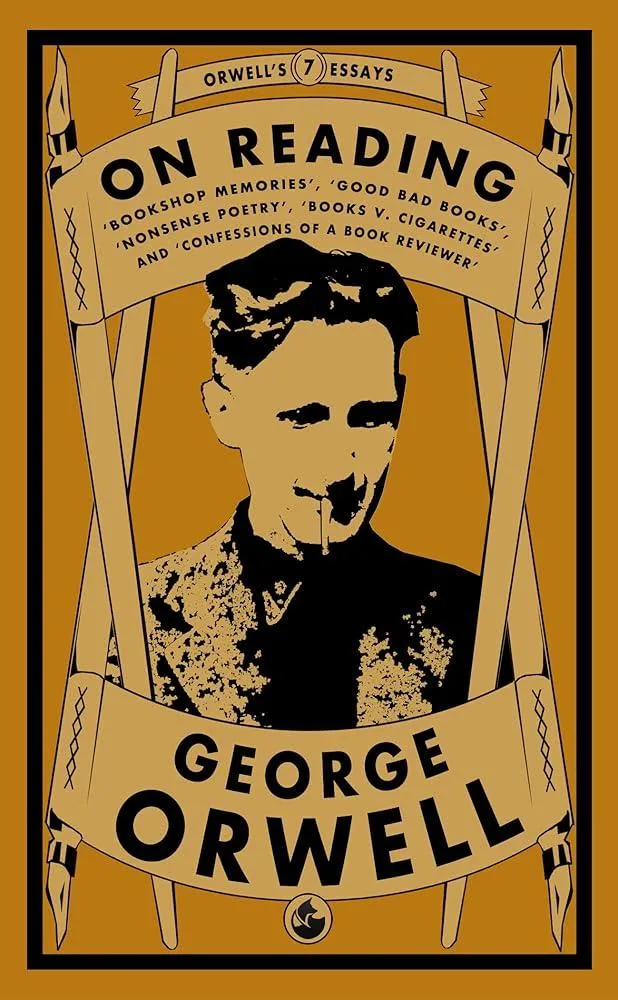Orwell on Reading
Bookshop Memories, Good Bad Books, Nonsense Poetry, Books vs. Cigarettes and Confessions of a Book Reviewer
(Author) George OrwellGeorge Orwell set out ‘to make political writing into an art’, and to a wide extent this aim shaped the future of English literature – his descriptions of authoritarian regimes helped to form a new vocabulary that is fundamental to understanding totalitarianism. While 1984 and Animal Farm are amongst the most popular classic novels in the English language, this new series of Orwell’s essays seeks to bring a wider selection of his writing on politics and literature to a new readership. On Reading, the seventh in the Orwell’s Essays series, collects together Orwell’s short essays on books – ‘Bookshop Memories’, ‘Good Bad Books’, ‘Nonsense Poetry’, ‘Books vs. Cigarettes’ and ‘Confessions of a Book Reviewer’ – giving a rounded view of the great writer’s opinions on the literature of his day, and the vessels in which it was sold.
George Orwell
George Orwell, born Eric Arthur Blair in 1903, was an English novelist, essayist, journalist, and critic. He is best known for his works "Animal Farm" and "Nineteen Eighty-Four," which are both powerful critiques of totalitarianism and authoritarianism. Orwell's writing style is characterized by clarity, precision, and a sharp wit, making his works accessible and thought-provoking for readers.
Orwell's contributions to literature include his exploration of political and social issues, as well as his commitment to truth and honesty in writing. His works have had a lasting impact on the dystopian and political fiction genres, influencing countless authors and thinkers. "Nineteen Eighty-Four" in particular has become a classic of modern literature, with its portrayal of a bleak and oppressive future society resonating with readers around the world. Orwell's legacy as a writer and social critic continues to be celebrated and studied today for its enduring relevance and insight.

